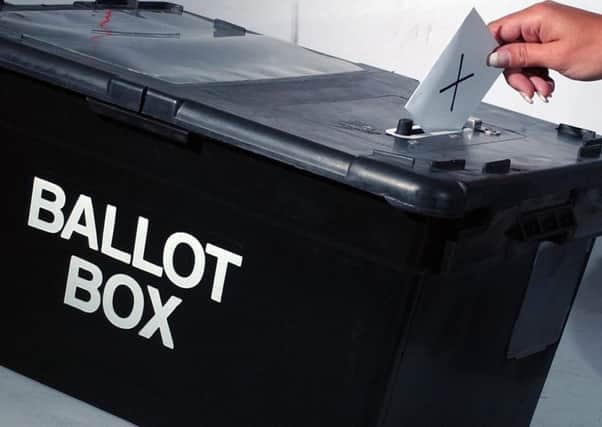Sam McBride: If you don't vote, others will decide who governs you


Even during the long years of the Troubles when Northern Ireland had some of the highest election turnouts in the UK and the stakes were demonstrably high, there was a segment of society which chose not to vote
But in recent years, shunning politics has almost become trendy. Half of the population now consistently does not vote. Many in that camp wear it as a badge of pride that they don’t vote.
Advertisement
Hide AdAdvertisement
Hide AdThis trend is, of course, not unique to Northern Ireland. But areas such as the US, where turnouts in elections are often much lower than here, show the fallacy of the suggestion that plummeting turnouts will necessarily lead to radical political upheaval.
In those states, low turnouts are just as likely to be interpreted as apathetic endorsement of the status quo by an electorate not sufficiently angry to vote out the incumbents.
Many non-voters in Northern Ireland justify their apathy – or in some cases their conscious refusal to vote – with the claim that ‘they’re all the same’.
Having observed a host of politicians at close quarters over seven years as this newspaper’s political correspondent, I can say that such a view is utterly inaccurate.
Advertisement
Hide AdAdvertisement
Hide AdEven within parties there is often a wide spectrum of politicians. There are politicians in Northern Ireland who are little short of scoundrels – individuals who are lazy and insincere. Outside of politics, many of them could not hope to earn anything like their Stormont salaries.
But there are others who are dedicated, conscientious and who show commitment to public service. Some of those individuals could have – and in some cases, did – earn far more than their Assembly salaries in the private sector.
It is right that the media scrutinise politicians rigorously by exposing hypocrisy, fraud and mismanagement of public funds – not least because it allows you to pass informed judgment on those individuals on election day.
The problem is that if voters only hear those stories some of them mistakenly form the view that the political class is universally base.
Advertisement
Hide AdAdvertisement
Hide AdThe nature of news means that it is that which is abnormal which gets reported. Therefore, when we report on an MLA who has been submitting dodgy expense claims, that should be seen as an aberration rather than proof that all MLAs are corrupt.
Despite the trend towards disengagement between much of the electorate and their politicians, slowly in recent years some people have begun to realise that refusing to vote doesn’t stop politicians from governing.
Whether on issues as diverse as hospital waiting lists, school transfer tests or abortion, opting out of politics means that the people who decide what you can and cannot do in many areas of your life are chosen by others.
You have no say in how they are selected but you are equally bound by the laws they make and the decisions they take.
Advertisement
Hide AdAdvertisement
Hide AdIn this election there is actually enormous choice, with as many as 18 candidates – spanning virtually the entire political spectrum – in some constituencies.
Remember that your ballot paper in combination with thousands of others in your constituency has the power to reward politicians who have served you well – and to dismiss those who you want to punish.